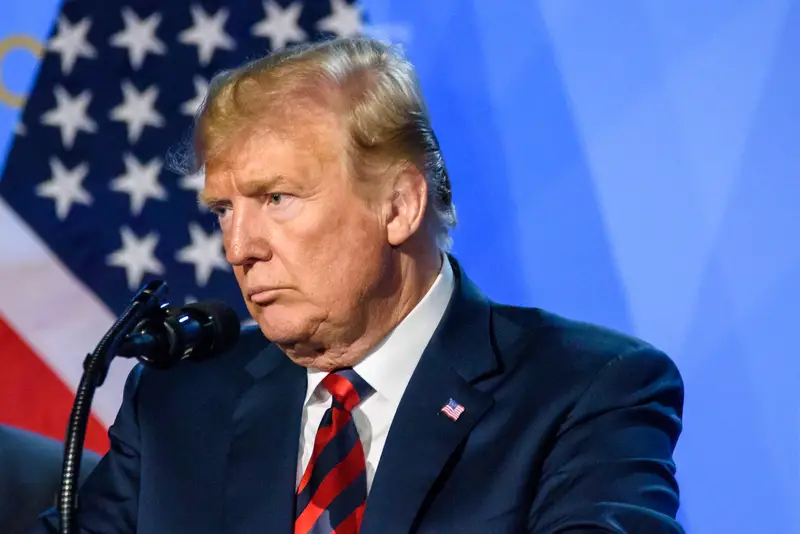President Donald Trump showed signs of confusion during a roundtable discussion at the White House on Wednesday, October 8, 2025, when a reporter posed a question about suspending habeas corpus. The inquiry was related to addressing anti-fascist insurrectionists and expediting deportations of undocumented immigrants, as termed by the administration.
The incident took place in the State Dining Room, where Trump was hosting conservative influencers and independent journalists. The purpose was to discuss their experiences with violence linked to antifa, an anti-fascist movement lacking a centralized leadership structure. The meeting had been ongoing for nearly two hours when the president was asked whether he had considered suspending habeas corpus.
Trump responded by questioning, “Suspending who?” seemingly treating the legal term as if it referred to an individual. When the reporter repeated “habeas corpus,” Trump redirected the question to Homeland Security Secretary Kristi Noem, indicating he would prefer to leave the decision to her and inquiring about her perspective.
Noem, who had previously faced challenges defining habeas corpus during Senate testimony in May, replied that she had not been involved in any discussions on the topic. The exchange was recorded on video and rapidly circulated on social media, attracting criticism from political figures across the political spectrum.
California Governor Gavin Newsom reacted to the video with the word: “Comforting.” Progressive journalist Mehdi Hasan noted that the president did not comprehend the term’s meaning.
The roundtable discussion took place amid protests against U.S. Immigration and Customs Enforcement officials, affecting cities including Chicago, Illinois, and Portland, Oregon. The Trump administration had designated antifa as a domestic terrorist organization the previous month, attributing a campaign of violence against ICE agents to the movement.
During the session, Trump described antifa members as insurrectionists and criticized their motivations, suggesting they receive financial compensation for their activities. The president requested attendees to assist the administration in identifying members or supporters of the movement.
The meeting featured appearances by Nick Sortor, Andy Ngo, and other individuals popular in right-wing circles, who shared accounts of violence they attributed to antifa activities. Attorney General Pam Bondi used the platform to outline the administration’s strategy for dismantling the organization, comparing it to past efforts against drug cartels.
Bondi indicated that the administration plans to methodically dismantle the organization, using what she described as a similar approach to that used against cartels to eliminate the entire structure. Secretary Noem compared antifa’s sophistication to international terrorist organizations, including MS-13, Tren de Aragua, ISIS, Hezbollah, and Hamas.
The roundtable was interrupted when Secretary of State Marco Rubio discreetly handed Trump a handwritten note concerning developments in Middle East peace negotiations. The note, captured by photographers, urged the president to first approve a Truth Social post to announce a potential deal.
Trump acknowledged the note by informing attendees that negotiators were engaging with senior officials, including Qatari Prime Minister Sheikh Mohammed bin Abdulrahman Al Thani, on a third day of talks aimed at resolving core issues between Israel and Hamas. Despite Rubio’s apparent urgency, Trump continued taking questions from the conservative activists for nearly 10 minutes.
Before concluding the session, Trump criticized mainstream media outlets, specifically mentioning MSNBC and CNN as dishonest organizations he considered a waste of time to engage with. He then departed to address what he described as issues in the Middle East.
Nearly two hours after receiving Rubio’s note, at 6:51 p.m., Trump announced on Truth Social that Israel and Hamas had agreed to the first phase of a U.S.-led peace plan aimed at halting the ongoing conflict in Gaza. The announcement included details about hostage releases and coordinated Israeli troop withdrawals.
The habeas corpus exchange underscored a lack of understanding of constitutional law, as the concept represents a fundamental legal protection against unlawful detention dating back centuries in Anglo-American jurisprudence. The writ allows federal courts to determine whether a state’s detention of a prisoner meets legal standards.











